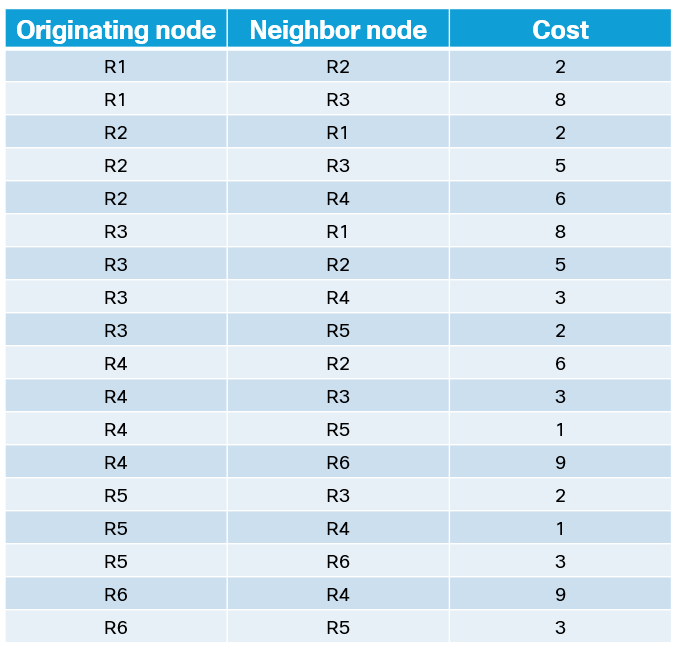You read that title correct… I’ve completed my DevNet Pro journey by passing the Cisco DEVCOR exam last week. I’m now officially a certified DevNet Professional!
In this post, I’m going to recap my entire journey, provide personal study tips, and how YOU can begin your own DevNet journey!
My Journey
Ever since I passed my CCNA in 2017, I’ve been striving to obtain my CCNP certification. However, I did a lousy job in chasing that achievement. I studied off and on for weeks at a time and really never mapped out my journey. I only took one attempt at the old CCNP Route exam and failed. After failing that, I took a hard look at each of the exam blueprints and made the ultimate decision to pause until the certifications were updated. Fast-forward to Cisco Live US 2019, I was in San Diego and was sitting at Chuck Robbins’ opening keynote where he announced the revamped Cisco certifications, and the addition of the DevNet certification track. I was pumped! By this point, I was already doing automation work at my job and loved it. After having a great Cisco Live that week, I began mapping out my journey.
Journey Mapping
This term is used a lot these days to describe and track customer experiences with a product, but I’ll be using it to describe how I got from Point A (CCNA with network automation aspirations) to Point B (CCNP and DevNet Professional).
The most important piece of mapping out your journey is to imagine the person you want to be. For example, I envisioned myself being a network automation engineer with CCNP and DevNet Professional certifications, so that was my “finish line” in this journey. This is the most crucial part of your plan, as it helps with WHY you’re embarking on this journey. There are many other WHY’s that can be included here: job promotion, future opportunities, your family, etc. Another crucial piece of your journey map is by setting limitations on what you’re achieving. This may sound weird because you always hear motivational sayings that “nothing can hold you back” and “the sky is the limit”. However, these limitations are only in the scope of this specific journey – not your entire life. This helps keep your focus on the journey’s goal. It helps focus on this specific building block. For example, my limitation for this journey was that I wasn’t going for my CCIE. I knew the temptation would be there once I passed the ENCOR exam, since it’s now the CCIE written exam, but I removed that temptation from the start by stating that only the CCNP certification was in-scope. The CCIE would be its own journey.
My Journey Recap
Once I knew where I wanted to go, I had to figure out how to get there. I started with the DevNet Associate. While studying for the DevNet Associate, the DevNet 500 was announced, which just poured fuel on my motivational fire. I ended up taking and passing the exam on the first day it was available in February 2020, and became part of the DevNet 500. After the DevNet Associate, I went back to the journey map and figured out that I could double-up the Cisco ENAUTO exam as my specialist exam for both certifications, the CCNP and DevNet Professional. With DevNet being newer, and the CCNP looming over my head since 2018, I decided to begin with the ENCOR exam. I passed that exam in October 2020 and moved immediately to the ENAUTO exam. I was able to quickly turn that around and complete it a month later in November 2020. I want to stress that I had past experience with 2 of the 3 Cisco product APIs outlined in that exam blueprint. That helped immensely while studying, which led to the quick turnaround in passing the exam. After the ENAUTO exam, I took a break for the holidays and reviewed the final exam’s blueprint, the DEVCOR. This was by far the hardest exam. Besides the amount of topics I didn’t know much about (Software Development and Design, K8s, etc.), this exam was also very broad. Like the ENCOR exam, there were a lot of topics covered and you really had to understand each one with some depth. I began studying for the DEVCOR exam in the beginning of January 2021 and was finally able to pass it last week (mid-April 2021).
DEVCOR Exam Tips
Create a Routine
One of the biggest tips I can give you is to create a routine. I mean same time, same place, on a regular cadence (that you choose). Some people start out and say they will be studying 7 nights a week/ 2-4 hours a night, but let’s be realistic… life gets in the way. Take a look at your calendar from the start and take note of life events that you know will prevent you from studying. For example, there were a few life events that I knew would throw off my schedule: family birthdays, weekend trips, etc. During those weeks, I would reduce the amount of material covered during that week. Read through the blueprint for the exam you’re studying for and assign specific topics for each week. By the end, you should have a detailed schedule of how long it will take you to study (with time to review) before sitting for your first exam attempt.
Once you have a clear schedule (with realistic expectations), you can begin figuring out a specific time to study. This will highly depend on your situation in life, with the biggest factor being family responsibilities. Some people try to add time to their day by studying later at night or earlier in the morning. However, I went with option C and chose to substitute time from my existing schedule. Rather than watching TV or Netflix after dinner every night, I chose to study. Was it tough? Absolutely. I was so used to chilling out on the couch every night and watching my favorite series. There were some nights that I felt like I could blow it off, but my schedule reminded me that I would have to study twice as long the next day if I skipped. The last piece to the puzzle is where to study (stealing a real estate term: location, location, location). This is very important in order to keep concentration during your study time. At first, I studied at my dinner table. I quickly learned that there was too much going on around me and I couldn’t focus. I ended up studying in my office where I could close the door and had proper lighting. This location will be different for everyone. The only thing I suggest is to study only at this location while you’re at home. Your mind will be prepared and it will help you focus while studying.
Study Material
With the DevNet exams being a little over a year old now, there is minimal “official” study material available. This begs the question, where do I look for study material and what material is even good? Before we jump into the available resources out there, I want to go over my approach to choosing study materials. I always use each of the following formats:
- (2-3) Books or other reading sources (whitepapers, blogs, etc.)
- (1-2) Video courses
- Labbing (Crucial piece!)
Now for the specifics: For books, I normally read through the Cisco Official Certification Guide (OCG) for that particular exam (if available), supplemented by Cisco’s online documentation. For video courses, I’ve only used CBT Nuggets and Pluralsight in the past. However, this year, I’ll be checking out INE courses. For labbing, it really depends on the exam. For DevNet exams, I use Cisco DevNet’s free and reservable sandboxes. I used to use EVE-NG, but found myself troubleshooting issues vs. working with the actual products. I still use EVE-NG if I want to test some feature more extensively, but in the context of studying, your best bet is to stick with the sandbox environments.
The only exception to my study material approach is when I studied for the DEVCOR exam. With the extensiveness and depth of the exam, I decided to go all out and purchase Cisco’s Digital Learning DEVCOR course. It’s an online course that provided a combination of reading material, videos, and hands-on labs. I would highly recommend this course for anyone preparing for the DEVCOR exam. I can confidently say it helped me pass the exam. Now let’s talk about how you can get started on your own DevNet journey.
Starting your own DevNet Journey
Since I started my DevNet journey back in December 2018, the DevNet program has grown extensively. DevNet certifications were introduced. More resources have been added to the Cisco DevNet site, including learning labs and sandboxes. The program itself has become more popular due to businesses realizing the value behind automation and engineers beginning to look at their infrastructure as code. Here is how I suggest starting your journey:
- Look through the available DevNet exam blueprints. I’d suggest starting with the DevNet Associate.
- Review the learning labs on Cisco DevNet
- Learning labs provide step-by-step instructions on how to programmatically interact with a specific Cisco product or network device.
- Create API requests using Postman
- Postman is a tool used to test and explore APIs. Many learning labs require this piece of software as a pre-requisite. After receiving your first API response through Postman, I promise you, there’s no turning back…
- Python – Requests library
- The Requests library is used to programmatically interact with HTTP API endpoints (i.e. Cisco products in our case). This library allows you to collect the API response and perform additional manipulation/validation of the data using the power of other Python libraries.
It’s worth mentioning that the above suggestions are specific to Cisco’s DevNet program and does not encapsulate network automation as a whole. There are plenty of open-source Python projects out there that can help you get started, such as Netmiko, Nornir, NAPALM, Scrapli, and pyATS, to name a few. These projects allow you to programmatically connect to a network device (via SSH, NETCONF, etc.), collect and parse ‘show’ command outputs, and even push configuration to a device. You may even see a couple of these libraries referenced in the DevNet exam blueprints.
Conclusion
I know this is a longer and more personal post, so I appreciate you reading thus far. I purposely made this more personal and detailed so that you could know my story and hopefully relate in some way. I’ve read many “study tip guides” out there and they all seemed to bullet point the same high-level topics. I figured if I added more personal details and told my story, it could be more relatable to you. If you’re interested in Cisco DevNet or network automation and have questions, please feel free to hit me up on Twitter (@devnetdan).
Thanks for reading!





